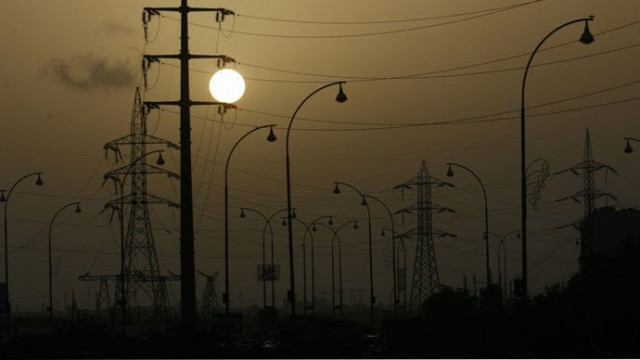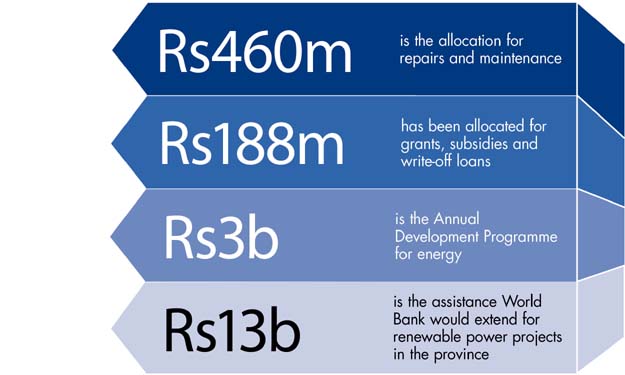Energy allocation at Rs16.1b, but 93% to be spent on clearing pending dues
Sindh govt says it will pursue renewable energy projects in FY18

PHOTO: REUTERS
“Budget estimates for current revenue expenditure of the energy department are estimated at Rs16.1 billion,” said Sindh government’s budget documents. “Of this, Rs15 billion will be spent on clearing outstanding liabilities of various government departments pertaining to distribution companies such as K-Electric, Hyderabad Electric Supply Corporation (HESCO) and SEPCO.”
Nawaz feels the heat of electricity outage
The provincial government has already cleared outstanding liabilities amounting to Rs27.4 billion to HESCO and SEPCO and paid another Rs13 billion to K-Electric, Sindh Chief Minister Murad Ali Shah said in his budget speech in the provincial assembly on Monday.
“Outstanding liabilities of K-Electric worth Rs13 billion have been cleared with the intention to mitigate load-shedding and enhance production capacity,” said Shah during the budget speech. “Unfortunately, K-Electric has disappointed us all. People of Karachi had to brave power outages even in this sacred month of Ramazan. We have taken up this issue with the management of K-Electric and the federal government.”

Govt’s reliance on renewable energy
The provincial government is also looking to focus on alternate/renewable energy, allocating amounts for wind and solar power projects. It announced a Rs3-billion development budget, mostly for renewable power projects.
It also announced that no new thermal (coal or gas-fired) power project or hydro power projects will be pursued. Thar coal-based power projects, expected to produce power by 2021, are among ongoing projects.
“The Annual Development Programme for the energy department is pitched at Rs3 billion for fiscal year 2017-18. With these funds, the energy department has taken various initiatives to increase energy output through renewable and non-renewable energy sources,” the document added.
The World Bank would also extend a sizeable Rs13 billion in assistance for renewable power projects in the province.
“Sindh renewable energy development project, for which World Bank will provide Rs13 billion as assistance, will be rolled out in new fiscal year 2017-18. In this project, the share of the government has been kept at Rs2.6 billion,” the document said.
Moreover, off-grid village electrification urban roof top PV (plastic) and solar PV demonstration power plants will be established and Rs500 million will be provided for these projects, it said.
Around 477 megawatts of wind power has been added to the national grid during the outgoing fiscal year 2016-17, said the documents. “Total installed capacity of wind power projects now stands at 785 megawatts. It will be enhanced to 1,085 megawatts in the next financial year,” it said.
Power policy soon
Shah said that the energy department is in the process of finalising the Sindh Power Policy. “The policy will unfold a futuristic plan to cater to Sindh’s energy needs.” The Sindh Assembly also adopted a bill to direct the collection of electricity duty from consumers “directly into the account of the Sindh government,” he said.
Power outages during first sehri foretell a difficult Ramazan
“Annual recovery of electricity duty from non-licencee (Private Power Producers) is Rs55.261 million,” he mentioned
Sindh has also acquired a 2.5% working interest in six exploration blocks in Sindh under Petroleum (Exploration & Production) Policy 2012 through Sindh Energy Holding Company. “These blocks are Armala, Ranipur, Zorgarh, Malir, Shahbandar and Khipro East, operated by OGDCL and PPL,” he said.
Published in The Express Tribune, June 6th, 2017.
Like Business on Facebook, follow @TribuneBiz on Twitter to stay informed and join in the conversation.



















COMMENTS
Comments are moderated and generally will be posted if they are on-topic and not abusive.
For more information, please see our Comments FAQ